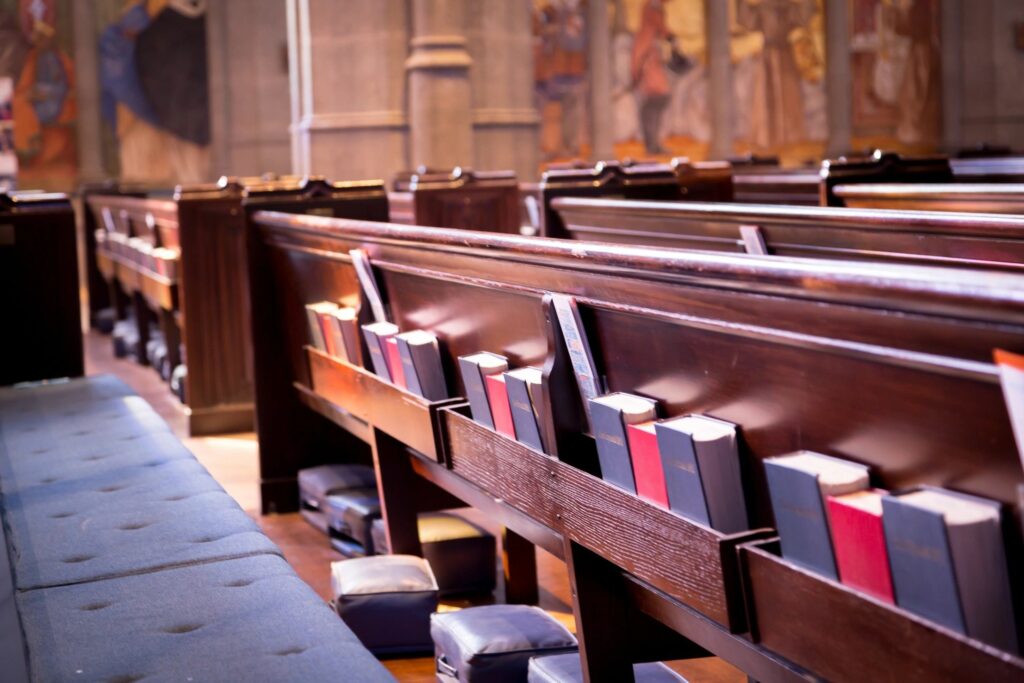Jerry Seinfeld’s great line is that sports fans’ allegiance is not to athletes but to laundry. One’s passion hinges on who wears what uniform.
Sadly, so too it is with religion. Too often it’s only marginally about what a savior might do and almost entirely about what vestments congregants salute.
Yes: colors and fabric. If that’s a generalization, let me ask: How much of your religion is dedicated to haberdashery as opposed to promoting a loving race of inhabitants?
Pardon my disgust. Over the last few weeks I’ve see the denomination under which I was raised torn asunder by a debate that should not be one.
Yes, though now zealously unaffiliated, when it comes to the affiliation of people who call themselves Methodist, I have skin in the game.
I was baptized a Methodist. In high school I swept the floors and washed the toilets of the modest church my father helped build, the same church whose hymns my mother accompanied at the organ for more than 30 years.
I no longer ascribe to the colors of organized religion, but I look fondly upon that congregation in which my family was so involved. No one modeled intolerance or the pursuit of mammon as driving virtues. No one appeared to embrace lying political demagogues as the truth and the way.
Religion as practiced in the church of my childhood was about helping others and making the church worthy of one’s tithe.
No more for those who would call the shots for Methodists.
With a callous up-or-down vote, the hierarchy of the United Methodist denomination have made unworthy the colors my family called its own.
This sad fact follows the vote by delegates of the United Methodist international conference to maintain bans on same-sex weddings and the ordination of gay clergy.
The vote was reasonably close – 449-374 – for a churchwide policy that is far from reasonable.
Consider that Rev. Karen Oliveto, bishop of the Mountain Sky District, which includes Colorado, Wyoming, Utah and Montana, is openly lesbian. Bishop Oliveto’s bond with her wife Robin, one that is backed by the Constitution, is rejected officially by her faith.
Nothing Jesus Christ ever did could be construed as embracing separatism like this.
Now Methodist congregations across the country are having to decide if loving principles are more important than affiliation with such a policy. A split is widely forecast.
Here’s hoping that many congregations will opt for a definition of love that defies earthly bounds and will embrace a love that has none. That means leaving the United Methodist Church.
Conflicts like this are not limited to Methodists. Presbyterians have split over the same issue, with the Presbyterian Church in America refusing to recognize same-sex marriages or ordination of LBGTQ individuals, while the Presbyterian Church (USA) allows both.
In recent years many Baptist congregations have fled the Southern Baptist Convention to protest doctrinaire policies that forbid female pastors and that reject the congregational independence that historically has characterized Baptists.
I salute churches that decide that colors and vestments are not what their faith is about and that love and understanding are.
Yes, this is what the debate about same-sex relationships is about: love. It seems that Jesus had something to say about how that matter takes precedence over all.
And if love is what defines the church, that means it’s not up to those who, through the cloth they wear, deign to define it.
Matters like this are good reasons why so many young people reject the church, why so many congregations are graying and decaying.
I look forward to news that the congregation of my childhood has announced it is going to embrace love in its own way, and leave behind arbitrary limits on it.

